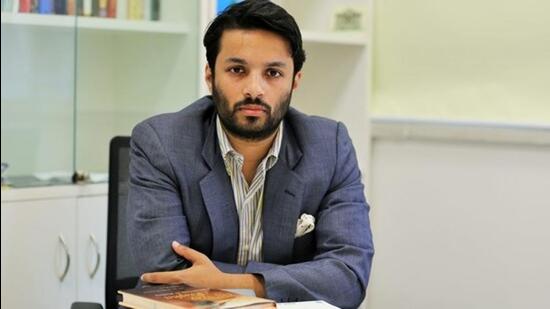What Led to Ali Khan Mahmudabad Being Summoned?
Recent controversy involving Ali Khan Mahmudabad, a professor at Ashoka University, who was summoned by the Haryana State Commission for Women on May 14, 2025. This issue is linked to his comments on Operation Sindoor, and Ali Khan Mahmudabad, an associate professor and Head of the Department of Political Science at Ashoka University, made comments on social media about this operation. He specifically mentioned the media briefings by women officers, Colonel Sofiya Qureshi and Wing Commander Vyomika Singh, calling them “optics” and “hypocrisy” if not backed by real change. The Haryana State Commission for Women found these remarks offensive, accusing him of disrespecting women in the armed forces and promoting communal disharmony. They summoned him to appear in Panchkula at 10 AM on May 14, 2025, to explain his statements.
Why Didn’t Mahmudabad Attend the Hearing?
Mahmudabad informed the Commission via email at 3 PM on May 14 that he received the notice too late to attend. However, the Commission’s chairperson, Renu Bhatia, did not accept this reason. She pointed out that Sonepat, where Ashoka University is located, is close to Panchkula, and called his delay an “excuse to avoid appearance.” While Mahmudabad did not attend in person, his legal representatives submitted a reply to the Commission. The panel is now considering taking legal action against him for not complying with the summons.
What Were the Commission’s Accusations Against Mahmudabad?
Commission claimed his social media posts did several harmful things: they disrespected women in the military, used misleading terms like “genocide” and “dehumanisation,” criticized military actions against terrorism, and risked causing communal unrest. The Commission also said his comments violated women’s dignity under the Indian Constitution and the Bharatiya Nyaya Sanhita, as well as the University Grants Commission (UGC) rules for faculty conduct. They felt his remarks were serious enough to question his role as a professor and even urged Ashoka University to reconsider his employment.
How Did Mahmudabad Respond to These Allegations?
This is perhaps the most shoddy defamatory piece of journalism that I have seen. It’s clearly a hatchet job. My quote has been cherry picked in order to create an headline.
— Ali Khan Mahmudabad (@Mahmudabad) May 14, 2025
Writer hasn’t even bothered to check that the posts are still on my Facebook! https://t.co/GBRBwR3SGv pic.twitter.com/w1oxebGGj5
Ali Khan Mahmudabad denied any wrongdoing, saying his comments were misunderstood and not against women or misogynistic. He explained that he appreciated the inclusion of women officers in the Operation Sindoor briefings but was emphasizing the need for real equality beyond symbolic gestures. Mahmudabad also challenged the Haryana Women’s Commission’s authority, claiming they had “no jurisdiction” over this matter. He called the summons a form of “censorship and harassment” and said his posts did not break any laws or harm women’s rights. He even reserved the right to take legal action against what he called defamatory accusations by the Commission.
This controversy shows the ongoing struggle between academic freedom and public criticism in India. The Commission, led by Renu Bhatia, called Mahmudabad’s statements “highly shameful” and questioned his suitability as a professor. Ashoka University has distanced itself from his remarks, showing the pressure institutions face in such situations. Meanwhile, Mahmudabad insists this is an attack on his freedom to speak, highlighting tensions over how far criticism can go, especially on sensitive topics like military operations. The Haryana State Commission for Women is planning further action, while this case continues to spark debates about free speech, accountability, and the role of academics in public discussions.





















